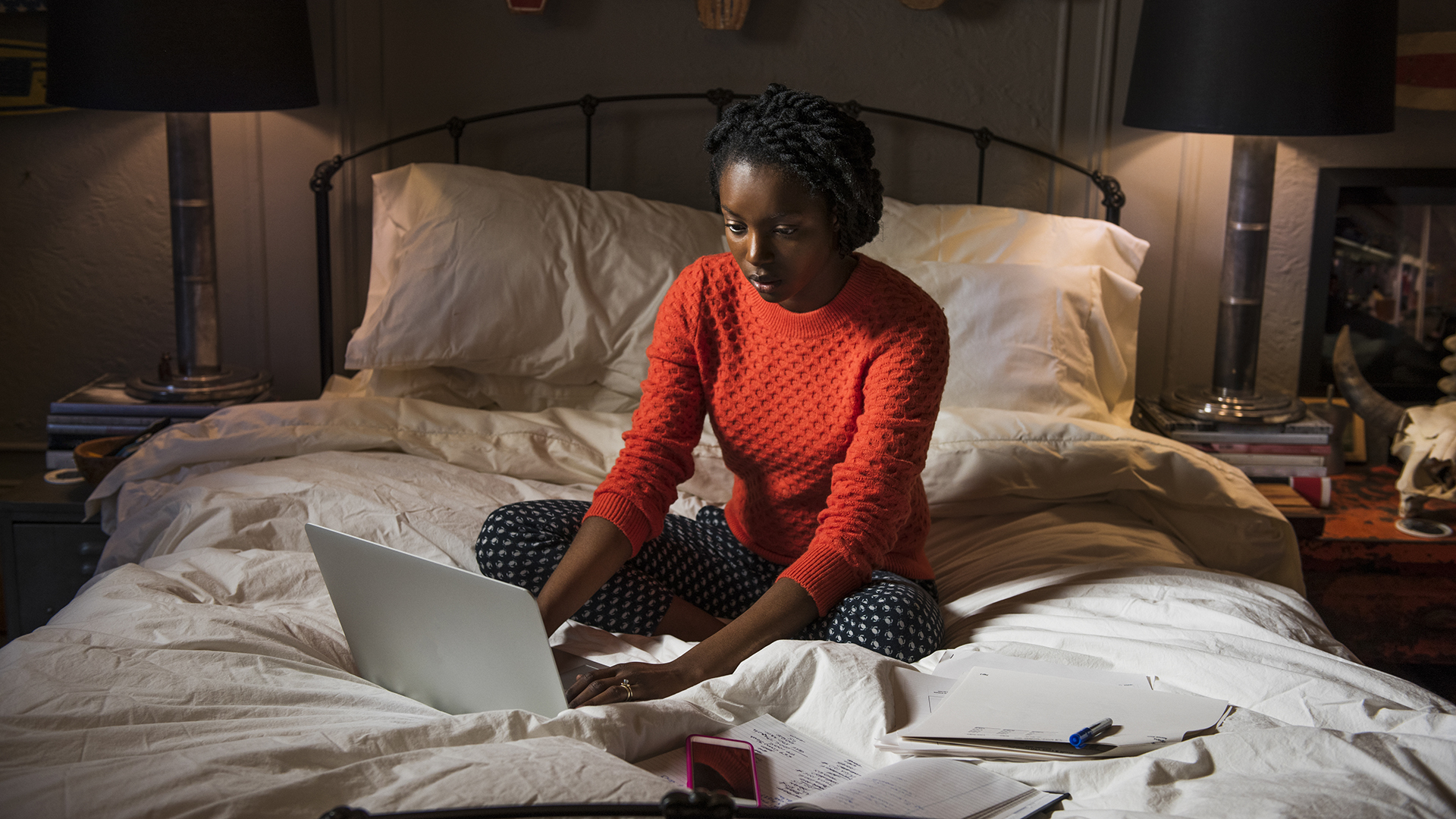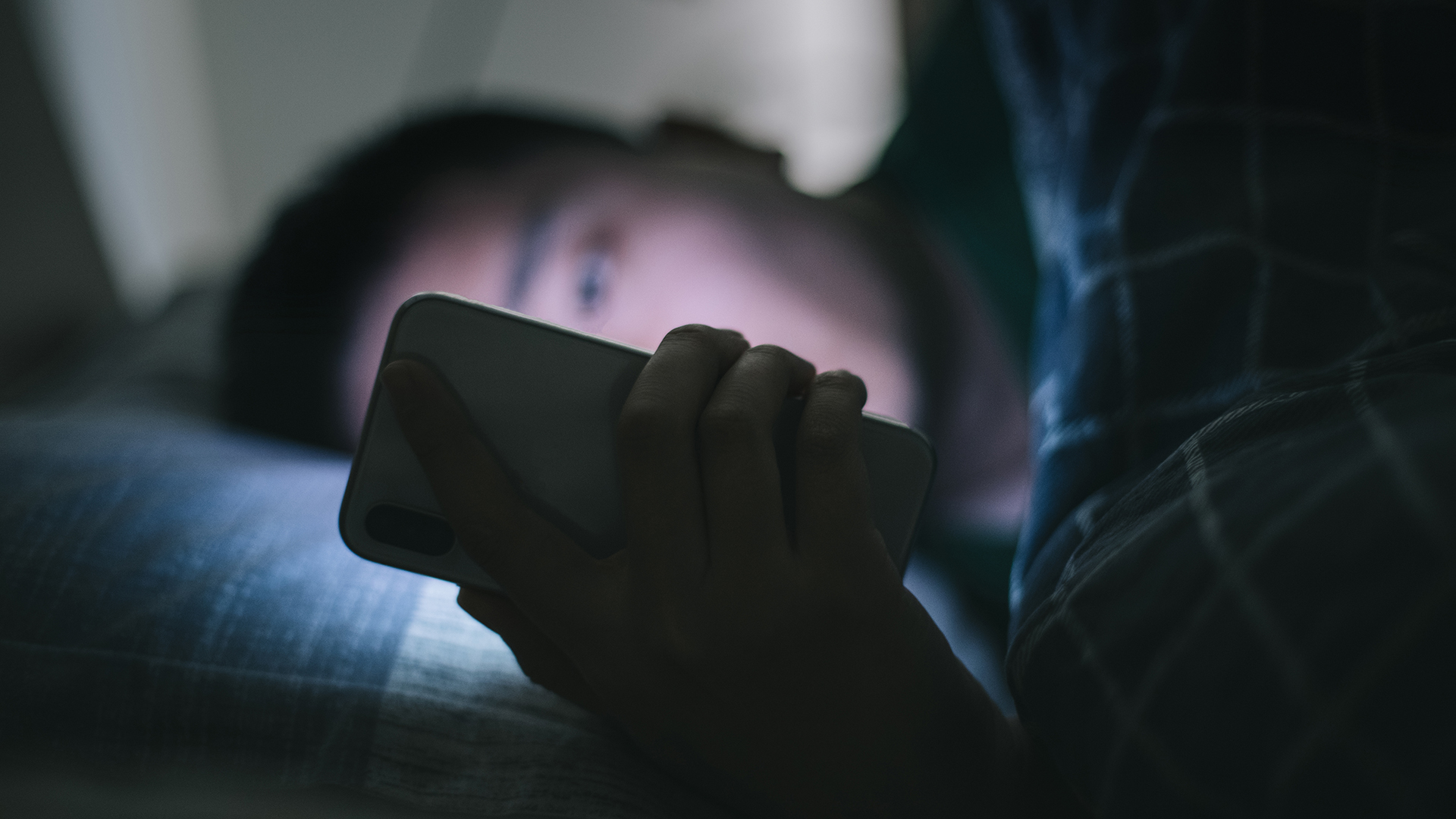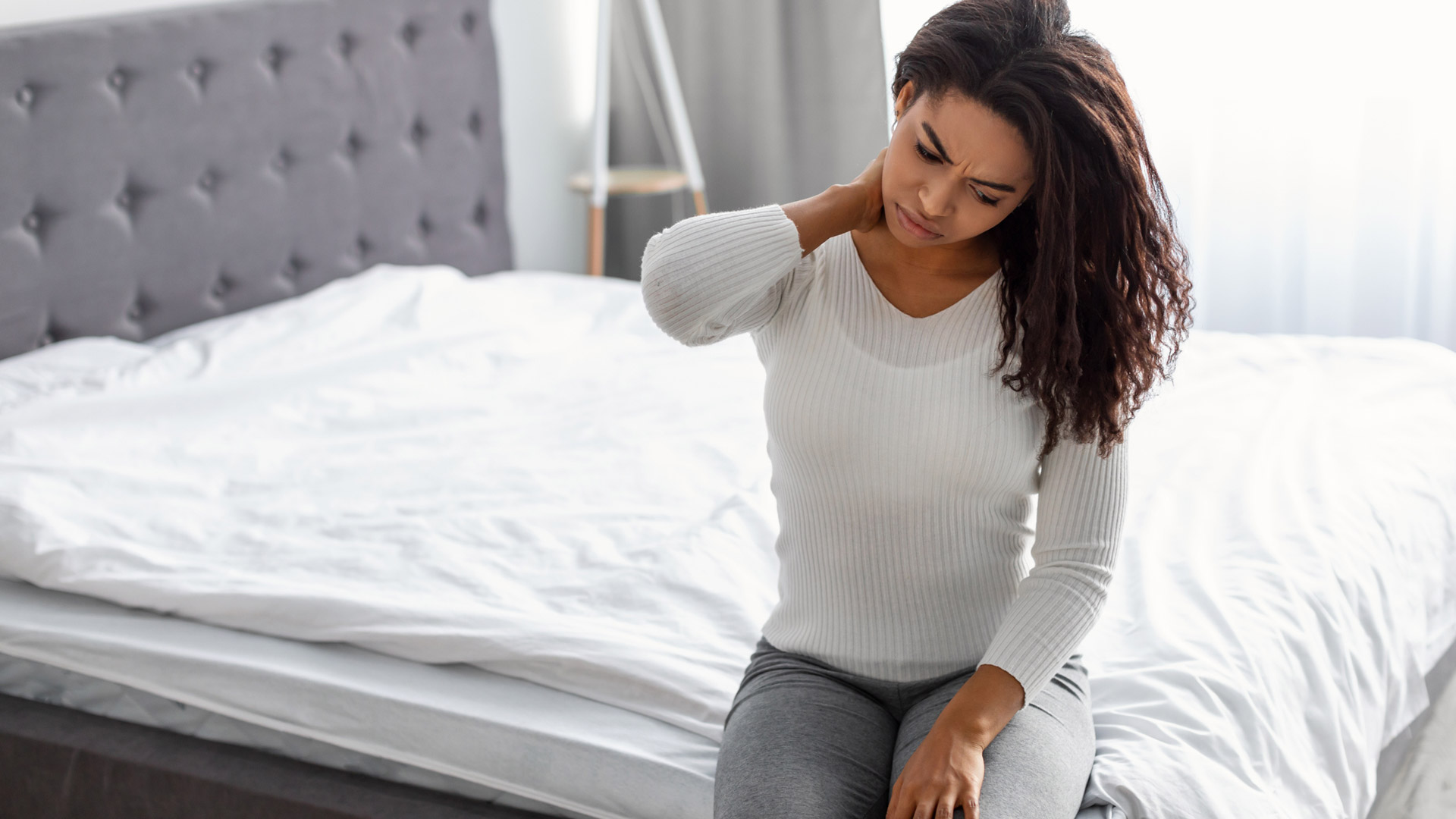I tried WFB (working from bed) – here's why I don't recommend it
Can working from bed work for you?

Once an unimaginable luxury, the rise in remote and hybrid working has made it possible for more and more people to combine the office with their mattress. Although a long-term hybrid worker, I’ve always chosen my desk over my bed. But faced with a few unusually early mornings, I decided to break from the norm and experiment with WFB (that’s Work From Bed).
I tried WFB for at least two hours a day, for three days a week. While at first I definitely saw the appeal – spreadsheets are a little more bearable from a blanket – it didn’t take me long to start missing my usual work setup. And even though I loved the convenience first thing in the morning, by the time I went to sleep at night, I was growing tired of my bed. But, in a frustrating contradiction, I wasn’t feeling very tired.
Work from bed didn’t work for me, and experts largely agree that conflating the office and your bedroom can have negative effects. “While working from bed offers convenience, it’s crucial to weigh the few benefits against the downsides,” says Sammy Margo, Sleep Expert at Dreams. “Flexibility can enhance comfort and productivity, but maintaining a clear work-rest distinction is vital.”
While I probably won’t try WFB again, others have had more success. But before you start looking for the best mattress that can double as a desk, I want to share my experience of working from bed, and what the experts suggest.
Expect worse sleep
My first day of WFB passed reasonably well. A short shift on an early morning, I was up and out of bed at a time that might be considered a luxurious lie in. I fell asleep relatively easily in the evening, and was up in the morning to start it all again. The problem didn’t set in until the next evening. Having spent part of each day working from my bed, by the time I was ready to settle in for the night, I found it almost impossible to switch my ‘work brain’ off. After all, just a few hours before I’d been in the exact same position answering emails.

I’m not the only one likely to struggle with the blurring of boundaries. “Creating a clear distinction between your sleep environment and workspace is crucial for maintaining healthy sleep habits,” Sammy Margo explains. “The bedroom should primarily serve as a sanctuary for rest. When you work in bed, the brain might associate the space with heightened alertness, hindering your ability to relax and fall asleep.”
Instead, we should be trying to keep our work life far away from where we relax. “Reserve the bedroom for sleep and intimacy, to help maintain a strong mental association between the bed and restful slumber,” Sammy suggests.
Get daily insight, inspiration and deals in your inbox
Sign up for breaking news, reviews, opinion, top tech deals, and more.
You might struggle with work as well
Working from bed might mean you’re spending less time sleeping, but surely you’ll use those extra hours to get ahead in your job? Actually, it turns out working in bed might not only hinder your ability to rest, but it can also hold back your productivity. I certainly found it harder to maintain focus during my WFB experiment. While I resisted the urge to simply snuggle back beneath the covers, the temptation was always there.
“Although the comfort of your bed might seem inviting for work, it can hinder your productivity,” Sammy cautions. “The brain associates certain environments with specific activities. Working in bed blurs the lines between work and relaxation, potentially impacting your focus and efficiency.”
Wait – Not even one email?

Who hasn’t checked their work emails once they’re already tucked in for the night? When a worry is keeping you awake, a quick glance at your emails can quiet that nagging voice. But it’s a habit we should all try to break. Bringing phones to bed means exposing yourself to not only the stresses from work, but also to the blue light your smartphone emits.
“When you work in bed with devices emitting blue light, it can lead to delayed sleep onset and disrupted sleep patterns. To promote healthy sleep, avoid using electronic devices in bed, particularly close to bedtime," Sammy advises. No more sneaky glance at your inbox after lights out.
And prepare for some neck ache
After just a few hours of WFB, I found I needed to get up frequently to shake off the aches and pains. My neck and shoulders had the worst of it, but my back and legs didn’t feel great, either. Beds are primarily designed for lying down, not sitting up, which is why they rarely offer the support needed for home working. “It can lead to poor posture, discomfort, and even musculoskeletal issues,” Sammy warns.
If you do choose to work from your bed, experts recommend creating a comfortable setup that supports your spine. Keep your body in a neutral position (no stretching or straining), and try to move regularly.

Can you make work from bed work for you?
Plenty of factors can disrupt our sleep levels, from what we eat before bed to choosing the best pillow for your sleep posture. It’s no wonder that combining a desk and mattress might make for some disturbed nights. But if you do want to attempt this modern approach to hybrid working, it’s important to set your own boundaries.
When your bed and your desk are the same place, it can be hard to define when you’re ‘off’ and when you’re ‘on’. Imagine sleeping in the office – you’d feel like you’re always at work. “Develop a routine that includes a defined start and end to your workday, and physically move away from the bedroom when you're not working,” Sammy suggests. Try ditching the pajamas for workwear and changing again in the evening. Take regular breaks to get out of bed, walk around, and stretch. And, at the end of your work day, stop checking your emails.

Sammy Margo, MSc MCSP MMACP HCPC AACP, established her physiotherapy practice 25 years ago and is a spokesperson for the Chartered Society of Physiotherapy. During her time treating patients, Sammy’s interest in sleep began to grow. She discovered that a good night’s sleep can have a significant impact on an individual’s healing process. With her hands-on experience, she went on to found The Good Sleep Expert.

Ruth is TechRadar’s Sleep Writer. She’s here to help you find the perfect sleep setup for your budget and personal preferences. As well as keeping a keen eye on everything that’s going on in the world of mattresses, she regularly speaks to experts to help you learn how to improve your sleep habits, whether that’s by debunking sleep myths or explaining the science behind it all. Prior to joining the TechRadar team, she wrote features and product guides for new parents hoping to get a decent night's sleep, as well as writing for a variety of online spaces.